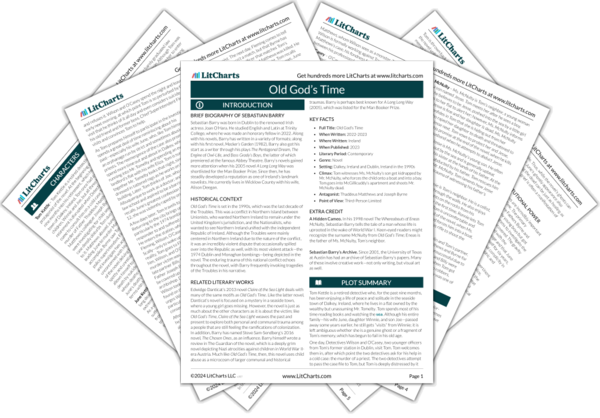Tom’s wondering about his connection to the universe is a subtle callback to the sequence of the neutrinos moving through him in chapter 2. As the possibility of his arrest draws nearer, he contemplates the impact that he might leave on the world, as shown by the subtle parallel between him and long-destroyed buildings that those younger than Tom simply don’t remember. This raises the question of whether Tom will be remembered at all.
